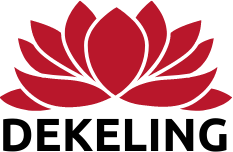It’s Saturday, December 16th and we are preparing to leave Nepal for a few weeks in Thailand. We’ll jump from 64 degrees to the mid-eighties as we disembark in Chiang Mai—another place saturated in Buddhism. A dharma friend of mine will meet us at the airport and we’ll check into our hotel and then go out for an early breakfast. It’s two short flights to get from here to there, but we’re leaving at 6:30 PM local time and have a 7-hour nighttime transit in Bangkok—so arriving at 7:15 AM.
The time in Kathmandu and the surrounding areas has been rich and educational. After settling in here, we then travelled to Mirik, India, to visit our monastery. Then we drove to Darjeeling, an important city in the northern Indian hills, where tea plantation entrepreneurs escaped the brutal summer heat of the lowlands in the early part of the 19th century. Darjeeling is at about 7,000 feet (about 2,000 feet higher than Kathmandu) and so it was quite cold already.
In a near-miraculous route of return that mostly relied on luck and karma, we made it from Darjeeling back to Kathmandu in one lonnnnnggggg travel day.
The Delhi international airport is modern and it was an easy stay since we didn’t have to leave the terminal. Outside the airport, Delhi has shockingly bad air pollution—with AQI once reaching 550—nearly 200 points worse than when the Pacific Northwest was experiencing dangerous wildfires several years back. This was an important experience, really driving home the cost of letting air pollution get irreparably out of control. It’s hard to image how India could reverse Delhi’s poor air quality, even as it slowly decreases both the quality of life and life span of all of its citizens, including humans and animals.
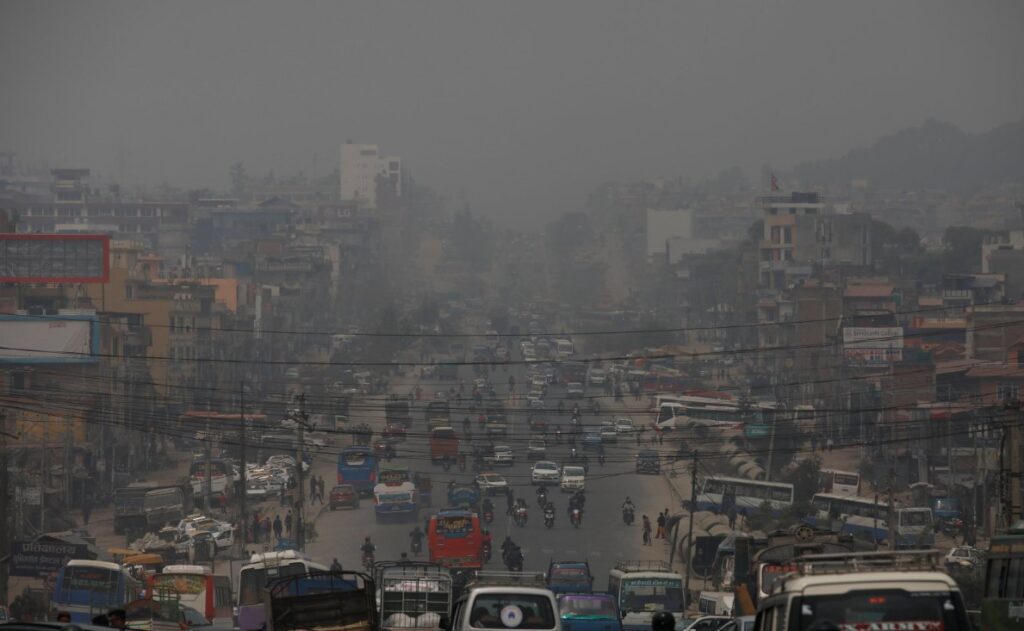
Just for reference, the AQI in Kathmandu is 72 today—50% better than a few weeks back and in Portland it’s reported to be 23. At 150 in Kathmandu, one is well-advised to wear a mask and I’d say half the population has a chronic deep cough when the AQI is in the 150 range.
Both Nepal and India are fascinating intersections of ancient and modern culture. Of course, both are predominantly Hindu countries, but both are also strongly impacted by Buddhism. I see it in every moment of life here. There is a tenderness and joy that flows freely in everyday interactions, despite the effort required to simply get by here. Down at the stupa, many stray dogs have little coats, fashioned from old sweatshirts and jackets. I don’t know, of course, if the jackets are helpful or not, but it seems clear that they are intended to keep the old street dogs warm as they lay in the sun near the stupa.
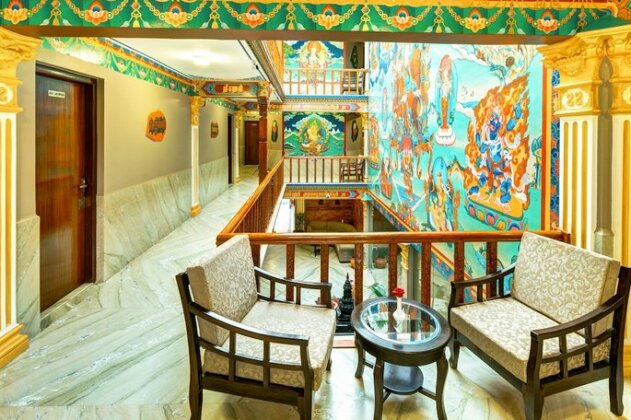
We have been at our hotel, Lotus Gems, long enough to know many of the staff by name. Some have shared their stories and all have enriched us by being the very embodiment of kindness and care. This is the second month’s long stint I have been in residence here. I can hardly imagine a nicer, more supportive place to stay. The hotel is run by a Tibetan family and the proceeds from the business are offered to their dharma teacher’s many humanitarian projects. He is here regularly, meeting with people and conducting the business of benefitting beings.
The hotel is at the end of dead end street, and is just a few feet from the entrance to Ven. Thrangu Rinpoche’s old monastery (He built a magnificent new one about an hour outside of town, in the hills near Namo Buddha a few years back. We visited that, too.) My alarm clock has been the 5:30 gong of the monastery, calling the monks to morning services.
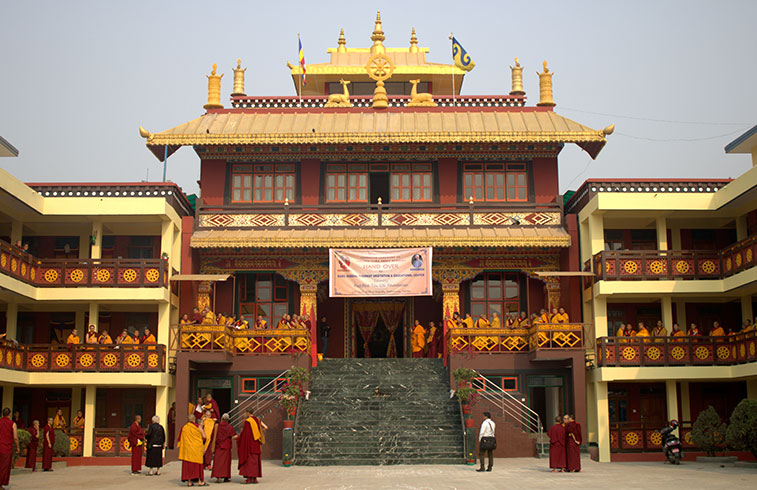
Both Julie and I got the usual Kathmandu bronchitis, related mostly to pollution. It’s a deep, persistent and sludgy cough, often accompanied by a mild eye infection. I visited the clinic twice, since mine is complicated by asthma. The CIWEC clinic was founded decades back by a Canadian team, and now includes a hospital wing with a dozen or so beds. At this point, I think all the staff are Nepali.
In Thailand, I’ll be slowing down a bit—taking time to enjoy the warmth and wandering around Old Town and doing some practice in my hotel room. We’ll also meet up with friends and eventually drive 3-4 hours to the northern countryside in Chiang Rai. I am especially happy to return to the small communities of various ethnicities in the mountainous regions. I learned so much last time I was there.
I am almost done lighting lamps here. A couple of emails about folks to remember came later, so I will light those and recite the names of those people when we’re back from Thailand. I am thinking about making an offering at a temple in the jungle for Dekeling community’s many animal friends, too.
On the topic of offerings, I made an offering to our monastery in Mirik and also one to Venerable Bokar Rinpoche’s tulku (incarnation) as well. These offerings were made by our community as a whole—you included. Our offering will be used for daily operations of the monastery and its activity, including education, healthcare, and housing for monks and nuns training under Ven. Khenchen Lodro Donyo Rinpoche. Due to the vision and generosity of Ven. Bokar Rinpoche, many of these same services are also extended to the surrounding community as well.
Travel here is quite different than in the USA. Things are pretty much completely unpredictable. There’s lots of information online, for example, and much of it not even remotely accurate, even on official government websites. Taxis may lack tread on their tires and oomph in their suspension and doors may or may not stay shut. Cultural and language are challenges even when intentions are to be flexible and collaborative. Most objects and most processes are about 70% functional, and to be honest I have come to appreciate ones that are that effective as ‘above the grade.’
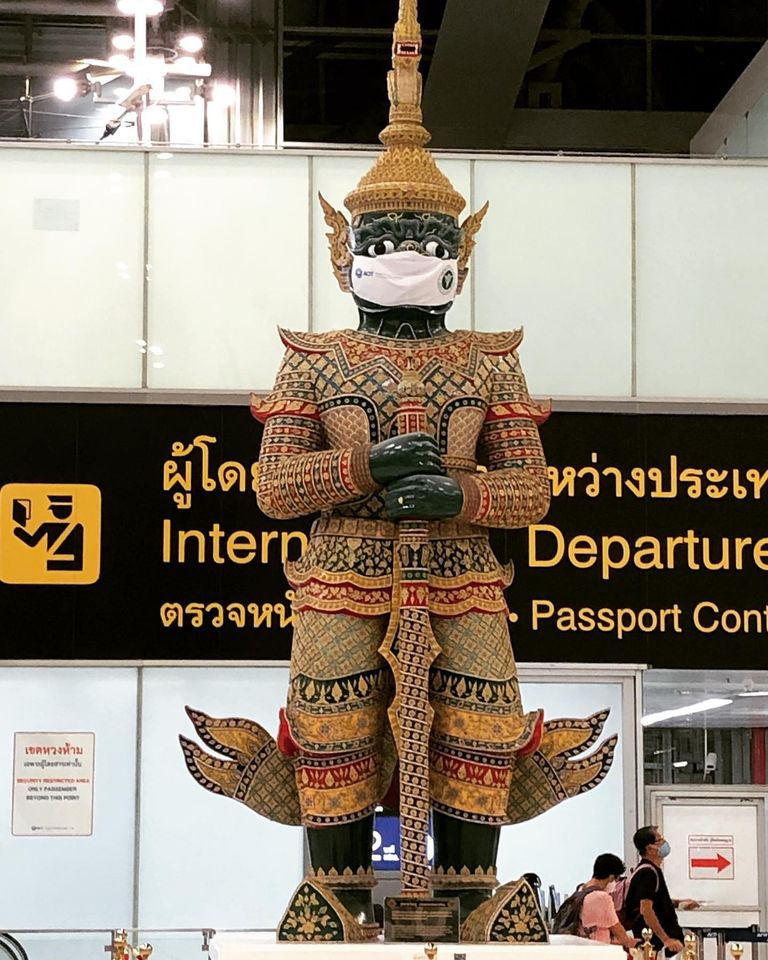
So each hour of a 14 or 18 hour travel day must be met with near complete patience, openness, and acceptance. I know if I have to sit and wait for two hours, it’s excellent good fortune to actually have a place to sit. Even more lucky to have a hint of information about what might happen next. It’s a wonderful practice of letting go. When I can do that, things always seem to work out fine, even if quite different than I expected.
I am ducking out to have a bit of lunch at the cafe next door before putting my luggage in storage and hailing a cab to the airport, where the rule is ‘hurry up and wait.’ Still—flying to Thailand certainly beats the other options.
I think of you all every morning as I sit snuggled into many blankets, watching my breath make small clouds on the out breath. Much gratitude for your practice and your regard for each other and all beings.
Lekshe
__________________
You can follow Lekshe’s travels via her Facbook page.
